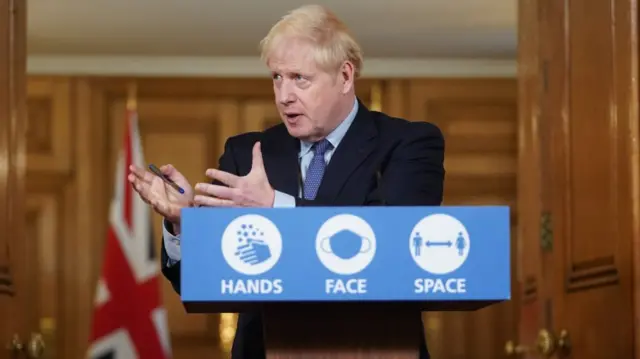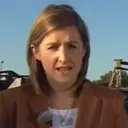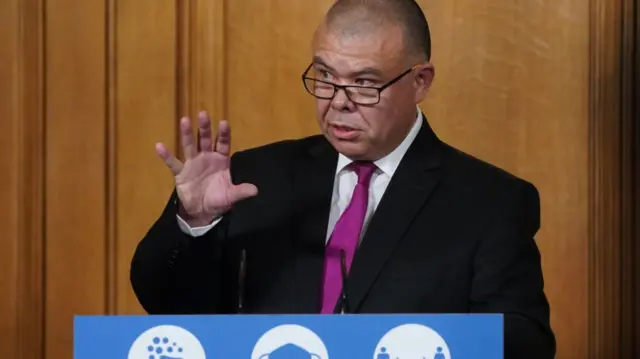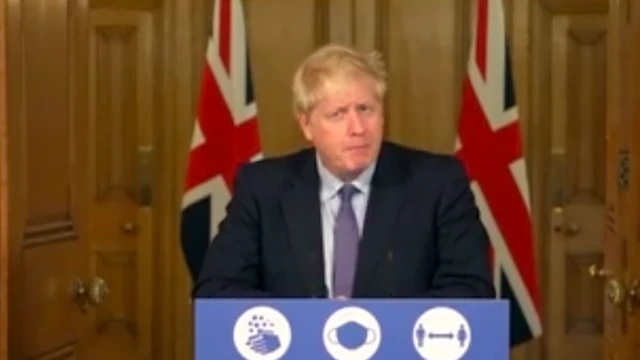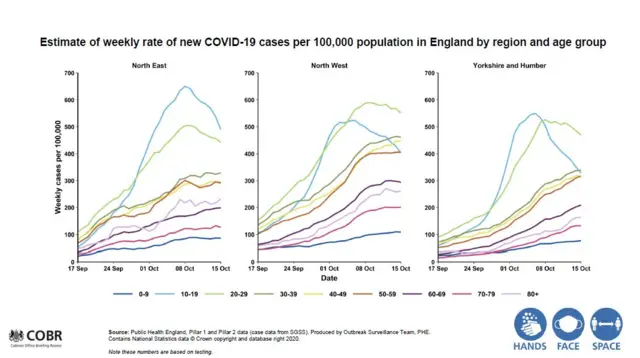PM: For hope, look at the universitiespublished at 17:54 BST 20 October 2020
Ending the press conference, Boris Johnson says: "We're walking a narrow path here today, because we don't want to go back into a national lockdown, with all the damage, social and economic that that can do, unless we absolutely have to.
"We think the local approach is the reasonable one given the way the virus is dispersed."
"And, just to sort of give everybody some hope, If you look at what is actually happening with the universities, for instance, they have done a great job of getting their virus under control."
He adds: "The R is currently above one but it's not that much above one, so if we all follow the guidance together... then I have no doubt that we can drive it down, particularly in those badly affected areas."

